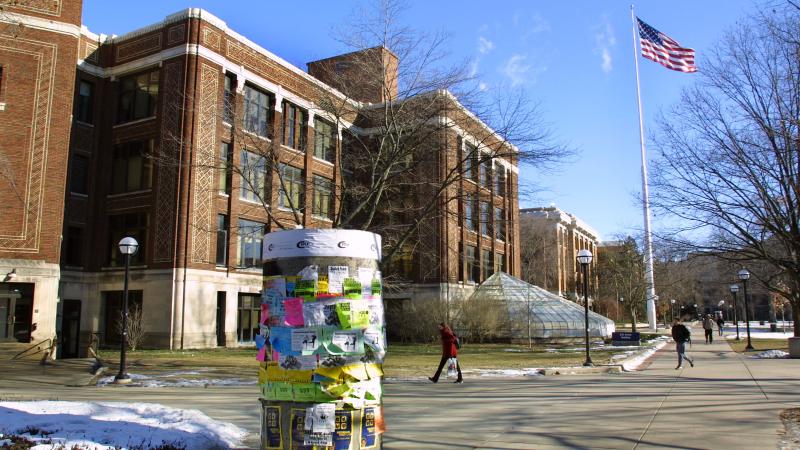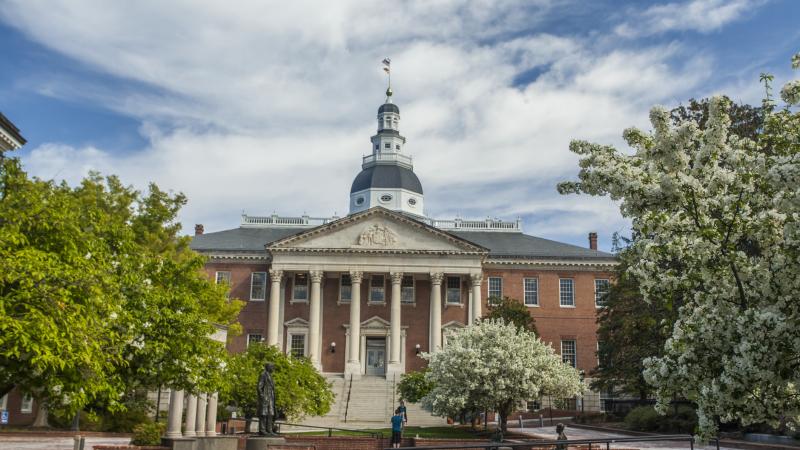Trump’s first task is herculean: closing the border. Here are his plans.
President-elect Trump plans to supercharge border patrol, combat sanctuary cities, complete his wall, and battle the drug cartels to end the immigration crisis.
President-elect Donald Trump will face many challenges on his return to the White House unwinding the policies of his predecessor, but one of his top priorities is closing the southern border and reversing the illegal immigration crisis.
To do this, Trump plans to supercharge border patrol, combat sanctuary cities, complete his wall, and battle the cartels to end the immigration crisis, according to campaign promises, policy documents from allied groups, and former officials.
Mark Morgan, who served as the Acting Commissioner of U.S. Customs and Border Protection under the first Trump administration and also served under the Obama Administration, said the new leadership will move to restore the polices revoked by President Biden and supercharge the Immigration and Customs Enforcement to begin removing illegal aliens—marking a return to “common sense policies.”
Morgan told the “Just the News, No Noise” TV show that Trump will use the existing statutory authorities of the immigration enforcement agencies and “infuse what I call a whole of government injection of steroids” to increase the magnitude of enforcement.
Trump is expected to prioritize the completion of his signature border wall. This will be closely followed by his pledge to implement the “largest deportation program” in American history as well as efforts to combat the power of the Mexican drug cartels.
Morgan also said a key component of resolving the crisis will be cracking down on sanctuary cities for refusing to cooperate with ICE, a policy that hindered Trump’s prior deportation efforts. “We've got to unleash state and local law enforcement to be able to actually assist ICE with identifying criminals in their cities to remove them,” Morgan said.
“I think that's where they're going to be taking a look at where can they actually hold back funding and put a maximum pressure campaign on these sanctuary cities,” he continued.
Trump has consistently taken a tough approach to border security during his political career, choosing the issue as one of the centerpieces of his first campaign for president in 2016. The issue was widely cited as a major factor in both his rise and successful campaign against Hillary Clinton.
Trump promised during the 2024 campaign that he would complete the southern border wall and beef up border patrol.
“We will complete the Border Wall, shift massive portions of Federal Law Enforcement to Immigration Enforcement, and use advanced technology to monitor and secure the Border,” the Republican Party platform, designed by Trump and his allies, promises.
Outline of steps
Key proposals have also been outlined by the America First Policy Institute, a Washington, D.C.-based think tank comprised of former Trump administration officials and loyalists, including former Homeland Security Secretary Chad Wolf, who have spent the four years developing plans for Trump's return to the White House.
In a policy document, the institute outlined the steps that a future Trump administration could take to solve the crisis, including proposals to use the military to fight back against the drug cartels and finishing the wall.
During an October visit to the border on the campaign trail, Trump unveiled a plan expand the U.S. border patrol by 10,000 agents and give current employees raises and bonuses in a bid to bolster the agency’s ability to confront and stop migrants at the border and restore morale that Trump says was lost during the Biden era. He said that he would ask Congress to immediately act on the proposal.
“They have a tremendous shortage because they haven’t been treated right. They want to do their jobs. You know, they consider it bad treatment when you’re not allowed to do your jobs,” Trump said.
"Wage war on the cartels"
After securing the border, Trump plans to turn to fighting back against the drug cartels that dominate cross-border human and drug trafficking. They are a major culprit in the volume of illegal immigration and also for spikes in drug overdose deaths, especially fentanyl.
“The drug cartels are waging war on America—and it’s now time for America to wage war on the cartels,” Trump said on the campaign trail.
The Trump campaign promised to deploy military resources, including special forces and other means, to “inflict maximum damage on cartel leadership, infrastructure, and operations.” In addition to designating the cartels as foreign terrorist organizations, Trump also promised he would work with other governments to fully dismantle the cartels, which are heavily entrenched throughout Mexico.
Deportation resonates with voters
On the home front, Trump plans to organize the largest deportation operation in history to remove illegal aliens from the country, citing the precedent of President Eisenhower’s Operation Wetback, the largest deportation of undocumented workers from the United States in a tactical operation by border patrol in cooperation with the Mexican government.
Trump promised on the campaign trail that this deportation would beat that record. "On day one, I will launch the largest deportation program of criminals in American history," Trump promised during a rally in Reading, Pa. "We're going to get them out.”
“Dwight Eisenhower has the record" for deportations, Trump went on. "He was a very moderate kind of a guy who [was] a good general [and] a good president... did a good job, but he hated the concept of people pouring into our country, and he has the record, but we're going to, unfortunately, beat the records, not something I want to do."
“Build the wall and make Mexico pay for it” became one of then-candidate Trump’s most popular refrains, though the construction would remain incomplete when he left office in 2021. Several unfinished sections remain on the southern border, a testament to the Biden administration's rapid efforts to reverse all of Trump’s immigration policies, chief of which was to halt construction.
Trump promised on the campaign trail he would restore the policies from that first term that were jettisoned by President Biden on day one, including the "Remain in Mexico” policy that released pressure on immigration officials trying to process asylum claims, which overwhelmed the current system.
Biden also reversed Trump’s travel ban – the blueprints of which were actually drawn by his predecessor Barack Obama's administration – on select Middle Eastern and North African countries plagued by unrest and terrorist groups. Biden also directed the Department of Homeland Security to reverse a Trump-era executive order that ordered harsh immigration enforcement.
These policy reversals, Biden critics contend, sparked the largest border crisis in American history. Since January 2021, when President Biden was inaugurated, there have been 10 million migrant encounters, 80% of which were at the southern border.
The staggering numbers became an albatross for Democrats and particularly for Vice President Kamala Harris, who replaced Biden as the party's nominee. Near the beginning of Biden’s term, Harris was given the task of addressing the “root causes” of the immigration crisis, for which she was referred to by pro-Biden media colloquially as the “border czar.”
Too little, too late
Shortly before the election, Biden signed an executive order to crack down on the illegal immigrant flows at the southern border as Democrats begun to realize it was a political liability. Critics said it was only a stopgap measure to improve his election chances. The order promised to address the overwhelmed asylum system by shutting down the border after encounters reached a threshold of 2,500 per day over a seven day period.
At the time, Biden was still a candidate and his approval rating on the border stood at an abysmal 33.4%.
Harris was chosen to replace Biden at the top of the ticket. Yet still, while running against Trump, Harris consistently received lower marks on immigration than her opponent. Exit polls suggest this was a liability for her. The Associated Press exit polls found that the issue may have played a decisive role in the election, especially the chief battlegrounds in the "blue wall" states of Pennsylvania, Michigan and Wisconsin, all of which were won by Trump.
To Congressman-elect Abe Hamadeh of Arizona, the fact that Trump calls for better immigration enforcement is no surprise.
“We cannot continue as a country with 10 to 20 million illegal immigrants pouring across our southern border,” Hamadeh told the “Just the News, No Noise” TV show. “So if you look at it, it's not a surprise to me that President Trump won overwhelmingly and won the popular vote, Electoral College and united Arab Americans, Latino Americans, black Americans. It was the biggest coalition ever.”
“And it's because all of these issues that we constantly talk about in the country the campaign trail resonates with the people,” he added.
The exit polls found support for Trump’s deportation plans ballooned to 40% of voters, up from the last election in 2020. Immigration was cited as the most important issue for Trump voters, according to a CNN exit poll. Immigration also ranked as the fifth highest issue in a pre-election Pew Research poll, with over 70% of respondents ranking the issue extremely or very important.
The Facts Inside Our Reporter's Notebook
Links
- Just the News, No Noise
- the Republican Party platform
- a policy document
- 10,000 agents and give current employees raises
- promised to deploy military resources
- President Eisenhowerâs Operation Wetback
- Trump promised
- jettisoned by President Biden on day one
- 10 million migrant encounters
- signed an executive order
- a CNN exit poll
- the fifth highest issue















